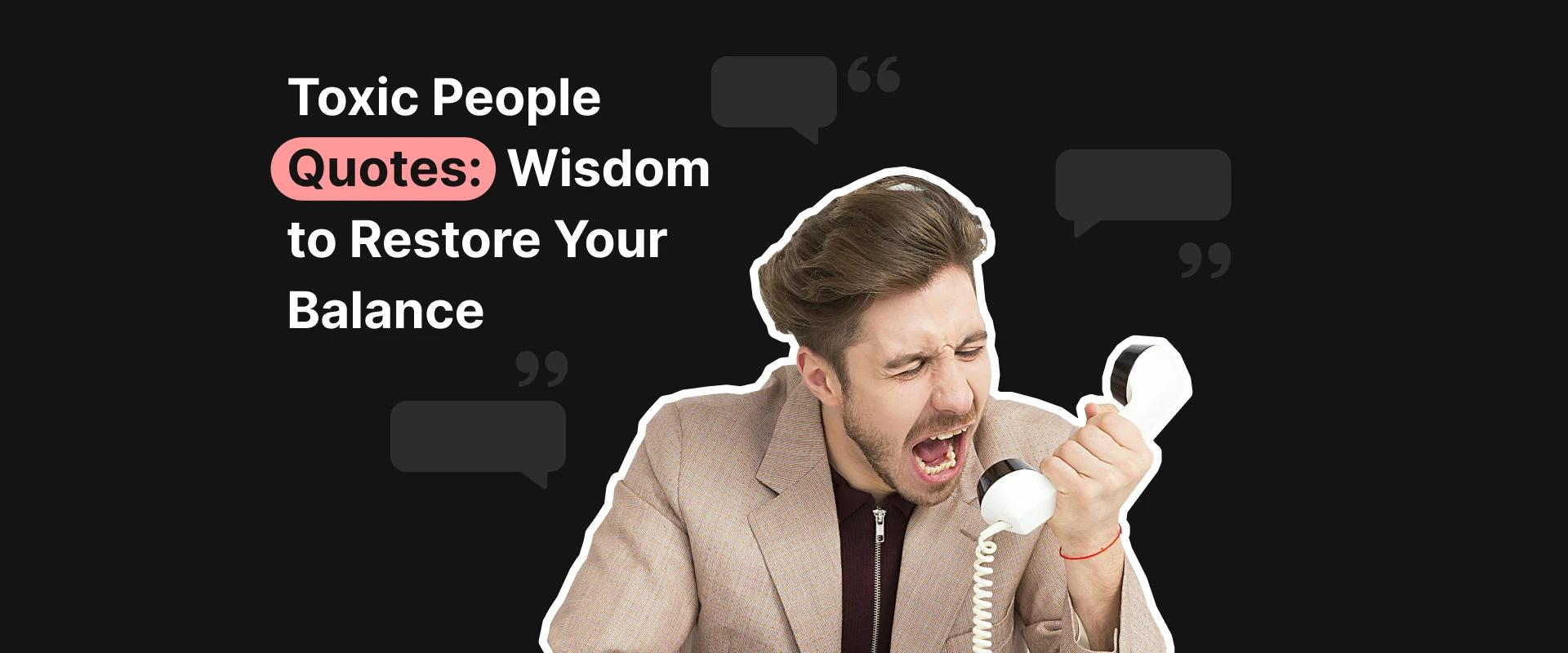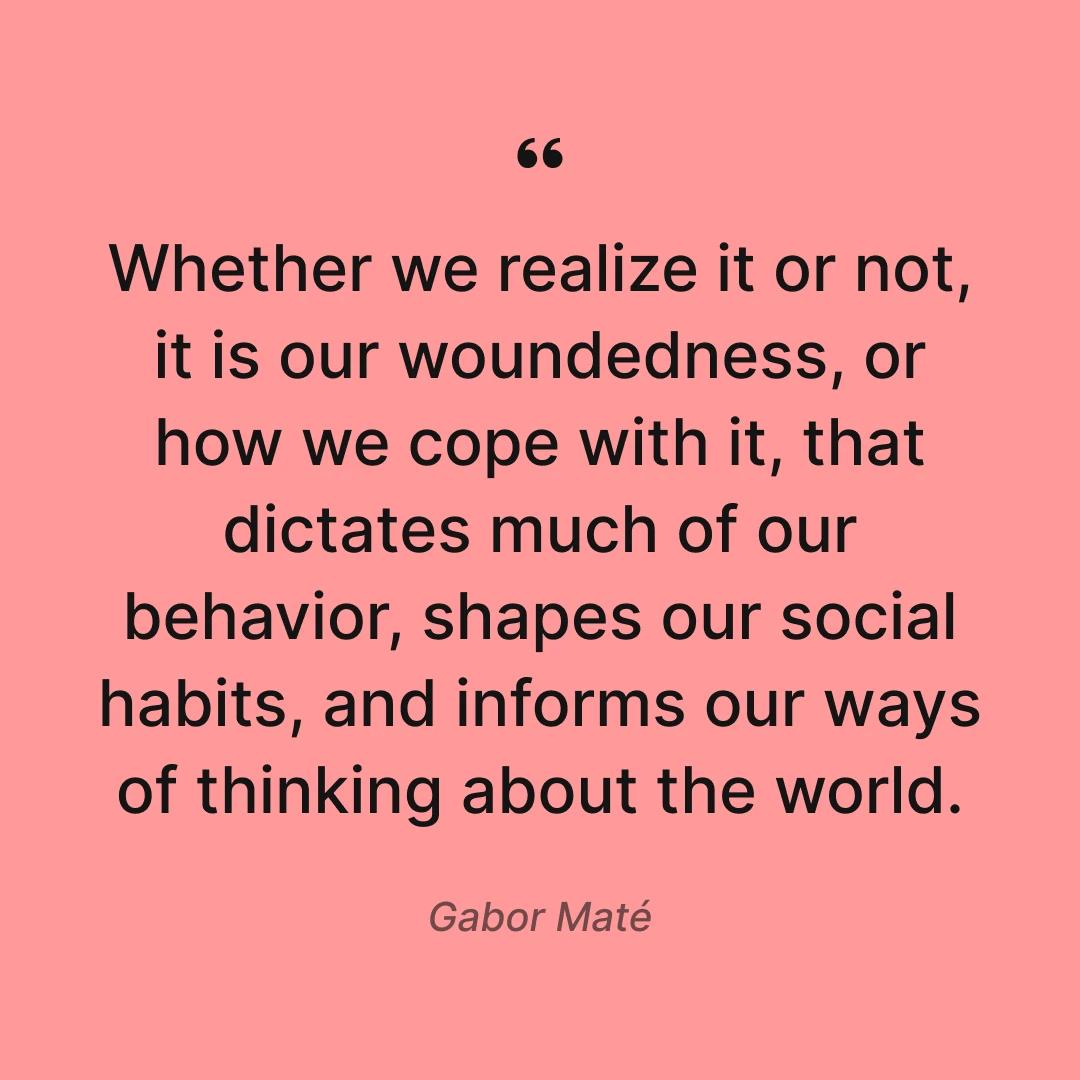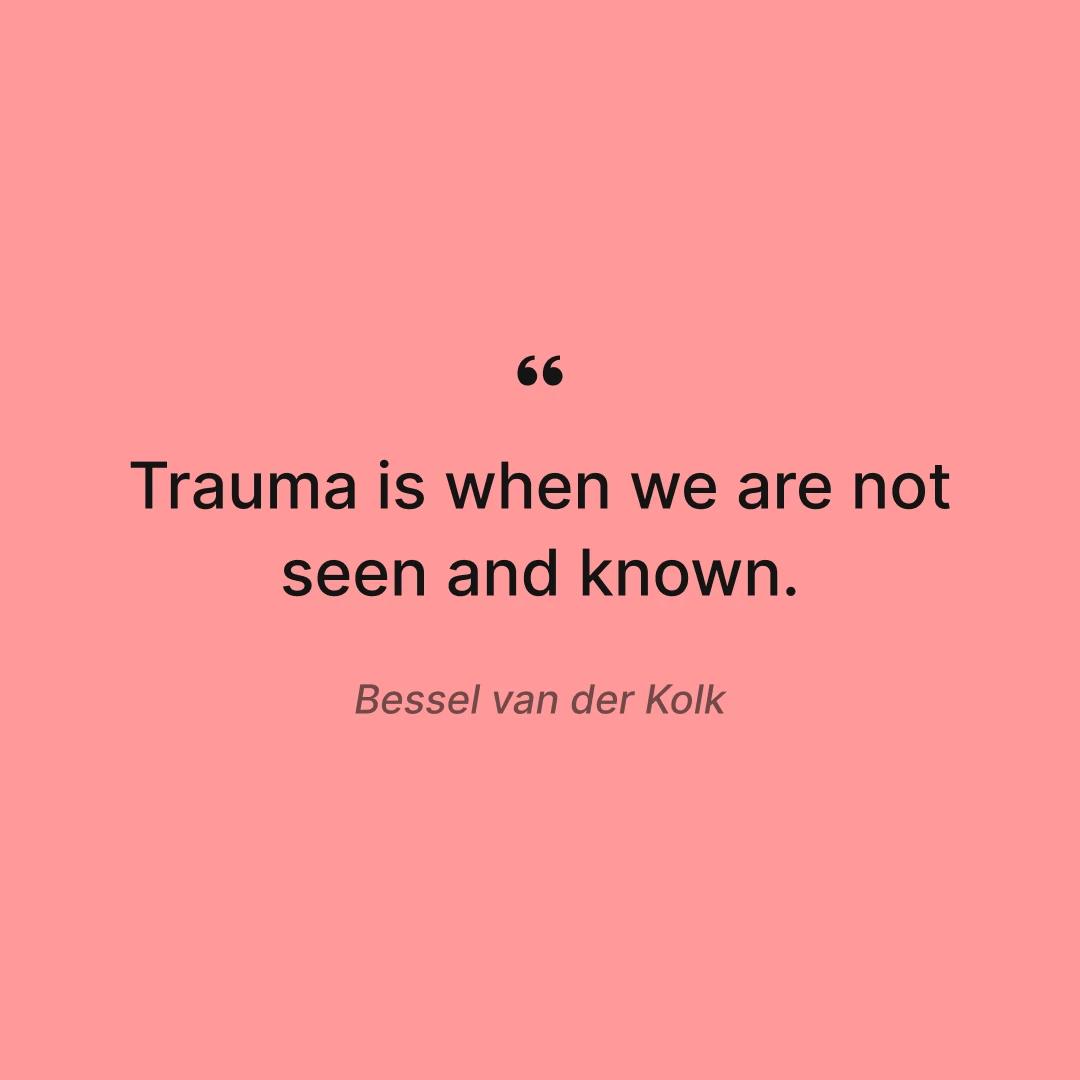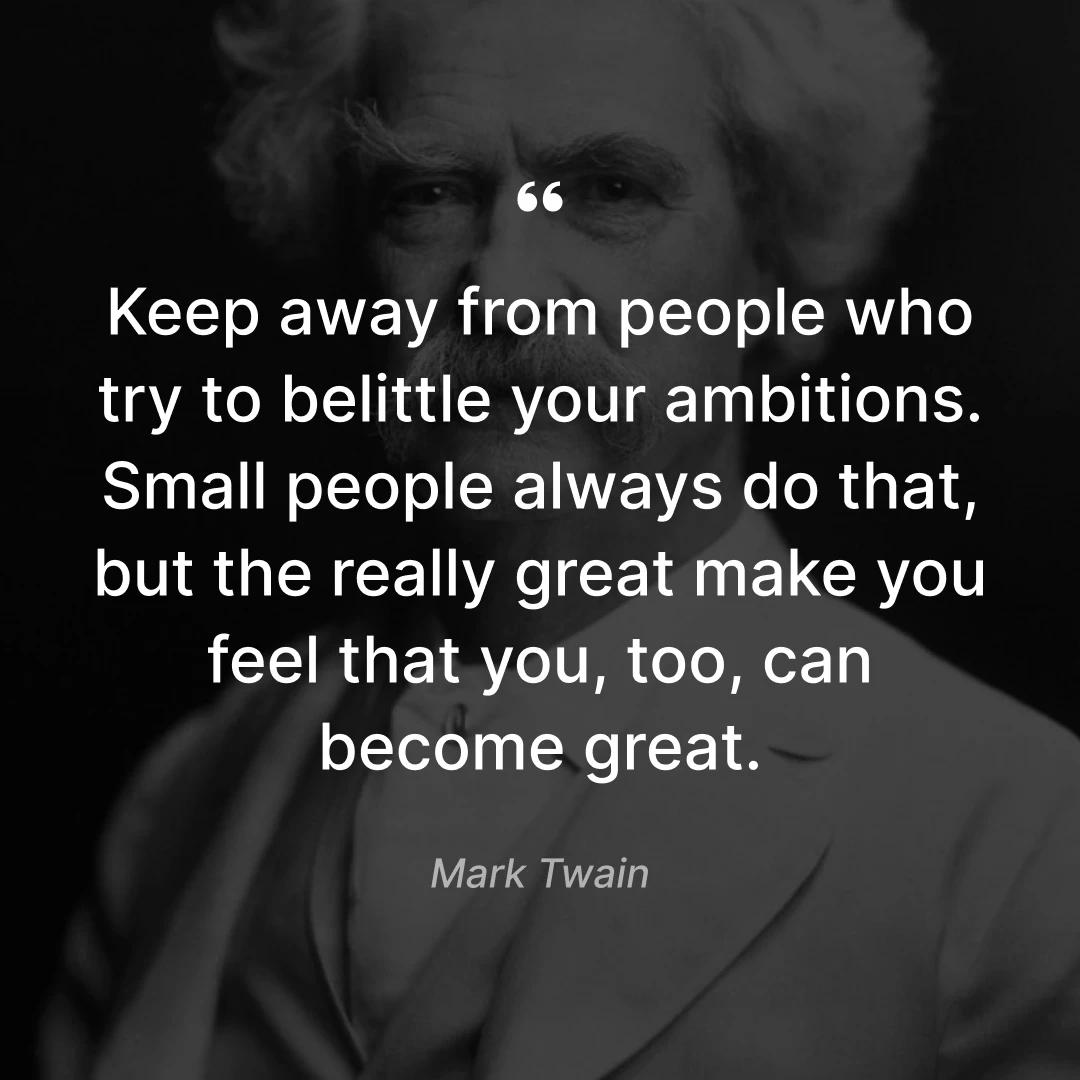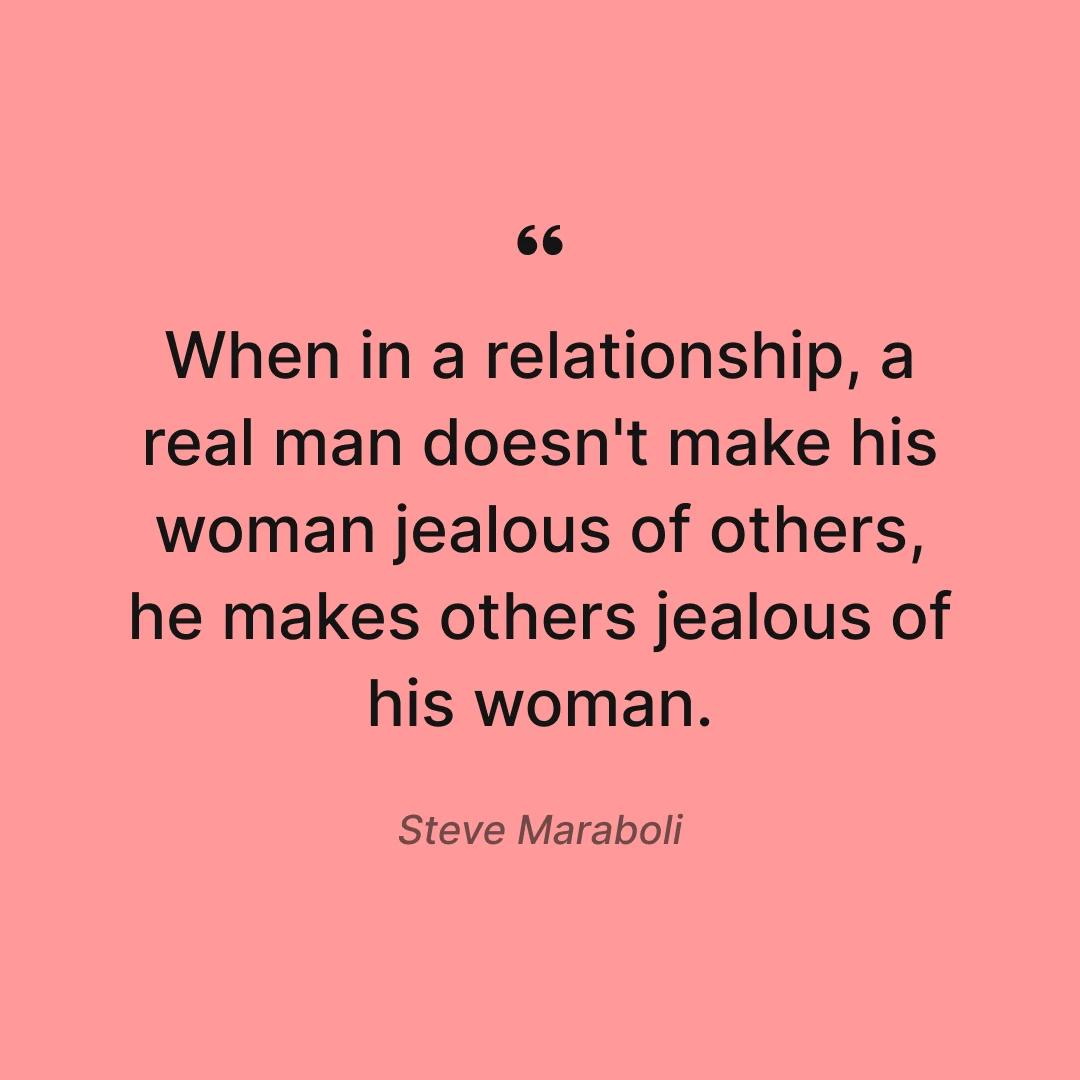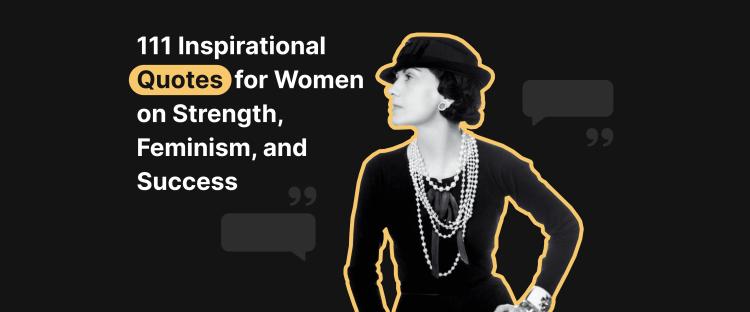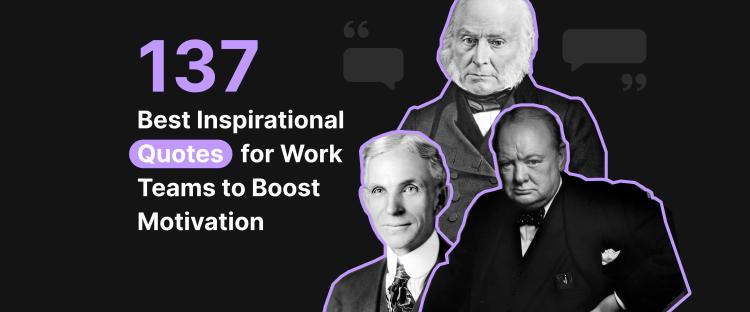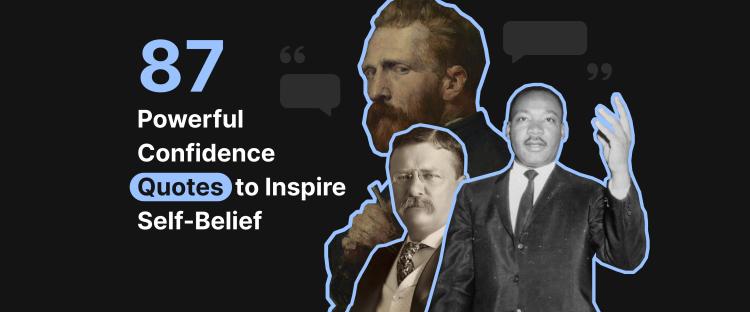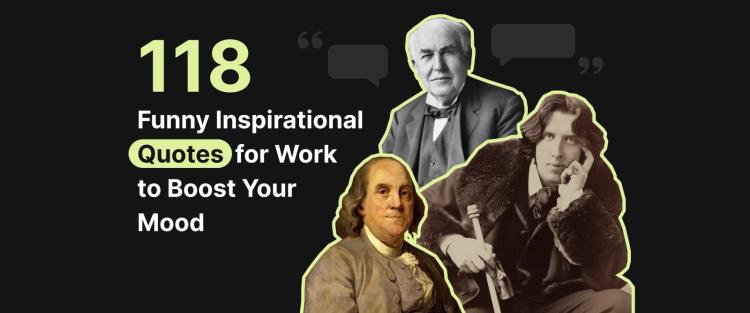Toxic people are like emotional black holes. Even when their behaviors seem like isolated minor incidents, the combined effect can stack up and damage your mental state.
What is a toxic person?
A toxic person is someone whose behavior repeatedly harms your emotional well-being through manipulation, criticism, control, or constant negativity. These individuals often blur boundaries and drain your energy over time.
You've likely encountered someone like this before, where manipulation, negativity, and mounting stress became inevitable. If so, you have to cut these toxic people out of your life. Otherwise, they will continue to manipulate and harass you.
But actually, doing this is often easier said than done. So, to help encourage you, we have collected motivational quotes and actionable insights from renowned mental health experts, including psychiatrist Gabor Maté, MD, trauma specialist Bessel van der Kolk, and psychologist Viktor E. Frankl.
Here are a few powerful quotes about toxic people to get you started:
“You are not the darkness you endured. You are the light that refused to surrender.” — John Mark Green
“Respect yourself enough to walk away from anything that no longer serves you, grows you, or makes you happy” — Robert Tew
Now, let’s check out some more.
Best toxic people quotes that help you heal and move on
Toxicity often manifests subtly. You might not realize you're in a toxic relationship, especially with family members.
Hopefully, these life quotes can give you perspective and courage to help you leave any toxic relationship.
1. Understand the patterns: Quotes on identifying toxic relationships
It can be challenging to identify when a relationship has crossed the line into toxicity.
The following quotes offer insights and perspectives that can help you recognize unhealthy patterns and behaviors.
"Whether we realize it or not, it is our woundedness, or how we cope with it, that dictates much of our behavior, shapes our social habits, and informs our ways of thinking about the world." ― Gabor Maté, 'The Myth of Normal'
"Children, especially highly sensitive children, can be wounded in multiple ways: by bad things happening, yes, but also by good things not happening, such as their emotional needs for attunement not being met," ― Gabor Maté, 'The Myth of Normal'
"It doesn't matter whether we can point to other people who seem more traumatized than we are, for there is no comparing suffering. Nor is it appropriate to use our own trauma as a way of placing ourselves above others—"You haven't suffered like I have"—or as a cudgel to beat back others' legitimate grievances when we behave destructively. We each carry our wounds in our own way; there is neither sense nor value in gauging them against those of others." ― Gabor Maté
"Trauma is when we are not seen and known." ― Gabor Maté, 'The Myth of Normal'
“Not all friends know they have lost you.” ― Joyce Rachelle
"If words don't add up, it's usually because the truth wasn't included in the equation." ― Unknown
“Some people are in such utter darkness that they will burn you just to see a light. Try not to take it personally.” ― Kamand Kojouri
"If you really loved me like you said, you would have been a better person to me."― Mr. Joshua Shaw
"When in a relationship, a real man doesn't make his woman jealous of others, he makes others jealous of his woman." ― Steve Maraboli
"Keep away from people who try to belittle your ambitions. Small people always do that, but the really great make you feel that you, too, can become great." ― Mark Twain
2. Moving beyond harm: Quotes on letting go of toxic individuals
Recognizing when a relationship turns toxic isn't always straightforward.
These quotes shed light on the subtle signs and dynamics that often reveal emotional harm and imbalance.
"In some ways, suffering ceases to be suffering at the moment it finds a meaning, such as the meaning of a sacrifice." ― Viktor E. Frankl, 'Man's Search for Meaning'
"I do not forget any good deed done to me & I do not carry a grudge for a bad one." ― Viktor E. Frankl, 'Man's Search for Meaning'
"Man does not simply exist but always decides what his existence will be, what he will become the next moment. By the same token, every human being has the freedom to change at any instant." ― Viktor E. Frankl, 'Man's Search for Meaning'
"When we are no longer able to change a situation, we are challenged to change ourselves." ― Victor E. Frankl, 'Man's Search for Meaning'
"But there was no need to be ashamed of tears, for tears bore witness that a man had the greatest of courage, the courage to suffer." ― Viktor E. Frankl, 'Man's Search for Meaning'
"Rehashing the past wouldn't change anything. Time to move forward." ― Zena Wynn
"Instead of hating someone, pray for that person. Don't forget to pray for yourself as well, that you may learn how to let go and forgive." ― Germany Kent
"Every day has a past. Every day has a tomorrow." ― Amy Meyerson
"Goodbye isn't the end. It's the beginning of what happens next."― Mr. Joshua Shaw
"Allow yourselves to gently fall apart. You've given your all. And now it's time to let it all go."― Mitta Xinindlu
"Respect yourself enough to walk away from anything that no longer serves you, grows you, or makes you happy." ― Robert Tew
"Pay no attention to toxic words. What people say is often a reflection of themselves, not you." ― Christian Baloga
3. Empowering yourself against toxic people: Setting boundaries for personal growth
"As long as you keep secrets and suppress information, you are fundamentally at war with yourself…The critical issue is allowing yourself to know what you know. That takes an enormous amount of courage." ― Bessel van der Kolk, 'The Body Keeps the Score'
"The greatest sources of our suffering are the lies we tell ourselves." ― Bessel van der Kolk
"As I often tell my students, the two most important phrases in therapy, as in yoga, are "Notice that" and "What happens next?" Once you start approaching your body with curiosity rather than with fear, everything shifts." ― Bessel van der Kolk
"Neuroscience research shows that the only way we can change the way we feel is by becoming aware of our inner experience and learning to befriend what is going inside ourselves." ― Bessel van der Kolk
"A busy, vibrant, goal-oriented woman is so much more attractive than a woman who waits around for a man to validate her existence." ― Mandy Hale
"You are not the darkness you endured. You are the light that refused to surrender." ― John Mark Green
"You cannot hang out with negative people and expect to live a positive life." – Joel Osteen
“Toxic people don’t like it when others see through them, so they’ll do all they can to make everyone else look like a monster.” – Nitya Prakash
“When we strive to become better than we are, everything around us becomes better, too." – Paulo Coelho
“You don’t have to stay in a toxic relationship just because there was once love there.” — Robert Tew
“Peace is the result of retraining your mind to process life as it is, rather than as you think it should be.” — Wayne W. Dyer
Three practical strategies for dealing with toxic people
While positive quotes can provide emotional support and perspective, let's now focus on practical, actionable strategies for dealing with the toxic people in your life.
More specifically, these ones:
Practicing self-care
Getting professional support
Strategy 1: Setting boundaries
Establishing healthy boundaries is essential for all relationships, not just when dealing with toxic individuals.
It's easy to feel obligated or conditioned to accept harmful behavior as normal at the cost of your well-being, especially within family dynamics. But let's look at an outside example for more perspective.
Imagine a mother-in-law, let's call her Carol, who consistently oversteps boundaries with her son and his wife, Sarah. Her typical behaviors include:
Showing up unannounced
Criticizing Sarah's parenting
Manipulating with guilt trips
Disregarding agreed-upon boundaries
Sounds familiar?
The first step in setting boundaries is identifying specific behaviors that cause distress. Is it a lack of respect, an invasion of privacy, or constant negativity?
"You teach people how to treat you by what you allow, what you stop, and what you reinforce." — Tony Gaskins
Once identified, the next step is to communicate your boundaries clearly. Let the person know what they're doing that's hurting you and what will happen if they continue.
According to Lalah Delia, one of the best choices when dealing with a toxic situation is to remove yourself from it. Even on, no, especially on social media.
"The greatest win is walking away and choosing not to engage in drama and toxic energy at all."
For example, "If you continue to make comments about my personal life, I will need to end this conversation."
Be ready for resistance, as toxic people often disregard boundaries. However, the opposite can also happen — people may not always realize they're being harmful, so the situation may improve if you let them know something is wrong.
Remember, setting boundaries is an act of self-love, not selfishness.
Strategy 2: Self-care practices
Take care of yourself! If you don't, no one will.
A good place to start is exercise. It doesn't have to be intense ― find something healthy that's also fun for you, like riding a bike or swimming. The enjoyment factor is essential! If you don't like your chosen activity, try something else ― otherwise, you'll never stick with it.
Get a good night's sleep and treat yourself to nutritious homemade meals! As the saying goes, "In a healthy body lives a healthy mind."
Honor your self-worth and allow yourself to process your emotions. Journaling or creative hobbies like music or painting can be powerful tools for processing and expressing emotions while gaining clarity.
Give yourself some time. Spend time in nature and allow yourself to breathe. The first time you let go of heartbreak, you'll realize that nobody can take your inner peace from you.
Strategy 3: Seek professional support
Letting go of toxic people can be hard on your own, especially if they hold any kind of power over you.
But you don't have to go at it alone! Help is available ― if you're struggling, contact your local professionals or supportive networks!
Resources like The National Domestic Violence Hotline provide confidential support, information, and assistance to those experiencing abuse. Most communities also have local support services where you can connect with trained professionals for help.
Are your relationships healthy? Self-assess them with 23 questions
It's not always obvious when you're in a dead-end relationship. You may not even realize you're being manipulated or taken advantage of until the situation has escalated.
These questions are designed to help you assess your relationships and identify potential sources of stress or unhappiness:
Do you often feel drained or exhausted after spending time with this person?
Do you feel pressured to do things you don't want to do?
Do you find yourself isolated from friends and family because of this relationship?
Do you feel safe and respected in this relationship?
Do you frequently feel criticized, judged, or belittled in their presence?
Does this person often interrupt or talk over you?
Do they often make negative or sarcastic comments disguised as "jokes"?
Do they frequently violate your boundaries (say, your privacy, time, and space)?
Do they frequently create drama or conflict?
Are they excessively jealous or possessive?
Do they have a pattern of lying or distorting the truth?
Do you experience frequent anxiety or stress related to this person?
Do you have difficulty sleeping or concentrating?
Do you feel isolated or alone?
Do you feel less joy in your life?
Do you often feel fearful?
Do you feel like you are losing your self-esteem and hope for the future?
If you answered 'yes' to one or more of the previous questions, it might be time to consider making changes.
These questions can help you think through practical steps for addressing unhealthy relationship dynamics.
The next set of questions will help you get out of the toxic situation:
Are there specific boundaries you need to establish or reinforce?
Who can you reach out to for support?
What self-care practices can you implement to prioritize your well-being?
Is it time to consider limiting or ending this relationship?
What are the benefits of staying in this relationship?
What are the costs and benefits of staying in this relationship?
Enhance your self-healing journey with Headway summaries
Overall, staying mentally healthy requires a proactive approach. Be critical of negative people around you, and don't be afraid to stand up for yourself.
A huge part of taking care of yourself is learning more about the human psyche.
Headway offers a powerful tool to support you in this process. Our concise book summaries provide you with key insights from leading experts in psychology, relationships, and personal growth.
Instead of spending hours reading entire books, Headway delivers the most impactful insights on toxic relationships, boundary setting, and personal growth in convenient, bite-sized summaries.
Learn from the best minds in psychology and relationship therapy anytime, anywhere, and immediately apply that knowledge to your own life.
Download our Headway app (available on Google Play and Apple Store) to explore detailed book summaries on psychological well-being, healthy relationships, and personal growth.
FAQ
1. What is a famous quote about toxic people?
“You cannot hang out with negative people and expect to live a positive life.” — Joel OsteenThis quote captures the impact toxic people have on your energy, mindset, and emotional well-being.
2. What is the meaning of toxic people?
Toxic people are individuals whose behavior consistently harms others emotionally, mentally, or physically — through manipulation, criticism, lies, or control. They drain energy, violate boundaries, and often create chaos.
3. How do emotionally intelligent people handle toxic people?
Emotionally intelligent people respond to toxicity with boundaries, empathy without enabling, and self-protection. They avoid escalation, prioritize mental health, and detach when necessary.
4. What are the four toxic behaviors?
Common toxic behaviors include:
Constant criticism
Manipulation
Passive-aggression
GaslightingThese patterns often damage trust and emotional safety in any relationship.
5. What are the signs of a toxic person?
Signs include constant drama, controlling behavior, lack of empathy, blame-shifting, emotional invalidation, and consistent boundary violations. A telltale sign is that you may feel anxious, drained, or belittled after your interactions.
6. What are the 5 types of toxic?
Five common types of toxic people include:
The Narcissist – is self-centered and manipulative
The Criticizer – always finds faults in others
The Controller – dominates and restricts freedom
The Victim – uses guilt and helplessness
The Drama Magnet – thrives on chaos and attention

